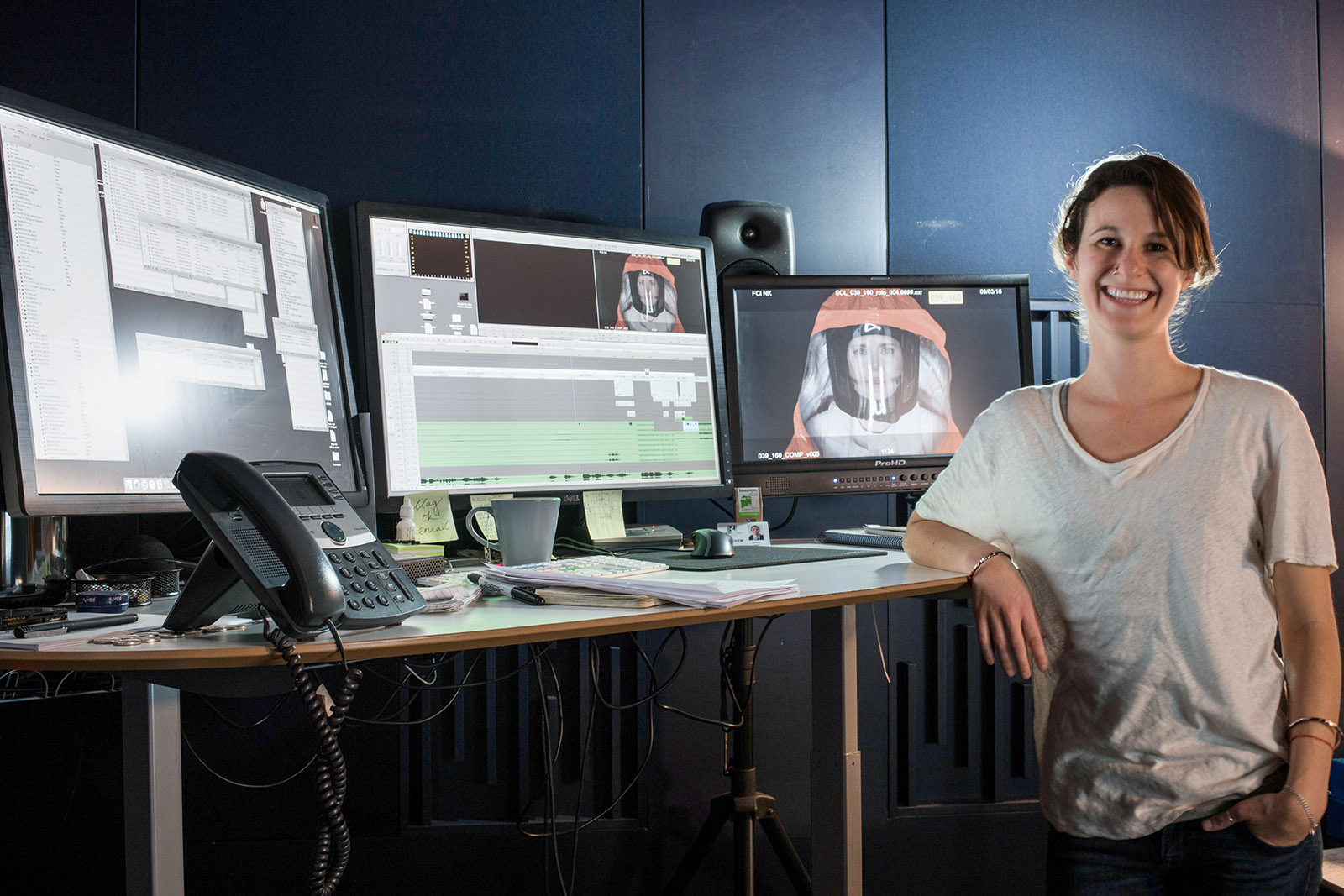Q&A: Alumna discusses the power of editing in new sci-fi drama ‘Arrival’

Alumna Mary Lukasciewicz worked as an editor of the new film “Arrival,” viewing the film about 50 times to perfect timing on scenes. (Courtesy of Mary Lukasciewicz)
By Olivia Mazzucato
Nov. 9, 2016 7:07 p.m.
Mary Lukasiewicz has seen the new film “Arrival” about 50 times – sometimes four times in the same day. She knows about 80 percent of the dialogue.
Lukasiewicz, a UCLA alumna, worked as the first assistant editor on the science fiction drama. Her job on the film consisted of organizing screenings, coordinating between different departments and reviewing footage.
The Daily Bruin’s Olivia Mazzucato talked with Lukasiewicz about how her experience on “Arrival” differed from her work on previous films, about her transferable work editing a drama and about the process of editing a science fiction drama.
Daily Bruin: You worked with editor Joe Walker and visual effects editor Javier Marcheselli before on “Sicario.” What is the dynamic like in your working relationship?
Mary Lukasiewicz: The three of us – Joe, Javier and myself – have worked together for a couple of years now, so it’s just a big family. Everybody’s really supportive of each other, and Joe really sets the tone for that.
DB: You were previously the apprentice editor on “Sicario” and now you’re the first assistant editor on “Arrival.” How was your experience different on this film?
ML: It wasn’t actually different; it was just more. Even as an apprentice, Javier trained me. He made sure I always knew what was going on. I was always very involved, and he would teach me whatever I wanted to know. … So during post-production, when Javier transitioned to the effects editor, and I transitioned into first assistant editor, it wasn’t anything different; it was just that I had more to do.
DB: Was working on a science fiction film different from previous films you’ve worked on?
ML: A little bit. We like to describe this as a dirty sci-fi, meaning that it’s not as much sci-fi. The sci-fi is an element of the story, but it’s not the whole story. It’s more of a human story that just happens to be set in a sci-fi background. But I think the biggest difference is that you’re creating a whole world. … You have to make up what you think you want; the rules that you want the world to adhere to.
DB: How do you convey the rules of the world through the editing?
ML: I think the biggest thing for editing that you have control over is time. … You can make things go faster; you can make things go slower; you can put things in a different order. The possibilities are really endless in that regard. … Someone’s head is turning too fast and you want their head to turn a little bit slower because it works better with how you think the character should react.
DB: How did time function within “Arrival”? Did you edit more quickly to create drama or more slowly to create suspense?
ML: I think we did it all. …The stuff that we had to work with was incredible. Amy Adams was incredible – all of the actors were amazing – and what we started with was so great. But sometimes, things don’t really translate to the screen like they translate on a page because you read at a different pace, obviously, than you watch things unfold in real time. So I think there were scenes that we would watch and it would feel – because of the action of the scenes around it – it would feel like an eternity.

